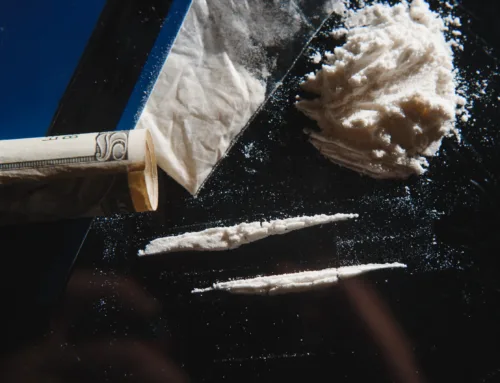What Are Stimulants and Why Are They So Addictive?
Stimulants are a class of drugs that enhance brain activity, leading to increased alertness, attention and energy. While they have legitimate medical uses, such as treating attention deficit hyperactivity disorder (ADHD) or narcolepsy, stimulants are also widely abused for their euphoric effects. Whether they are prescription medications like Adderall or illegal substances like cocaine and methamphetamine, stimulants can be highly addictive, posing serious health risks. Understanding the dangers of stimulant addiction and knowing where to find help is crucial. Freedom Detox & Recovery Centers near Charlotte, NC, specializes in helping individuals break free from the cycle of stimulant addiction.
What Are Stimulants?
Stimulants work by increasing the levels of certain neurotransmitters in the brain, particularly dopamine and norepinephrine. These chemicals are responsible for feelings of pleasure, focus and alertness. Common stimulants include:
- Prescription Stimulants: Medications such as Adderall, Ritalin and Vyvanse are often prescribed for conditions like ADHD. While these drugs can be beneficial when used properly, they are frequently abused for their performance-enhancing and euphoric effects.
- Cocaine: A powerful illegal stimulant, cocaine creates a short but intense high by flooding the brain with dopamine.
- Methamphetamine (Meth): Meth is a potent illegal stimulant that has an extended high and is highly addictive. It can cause severe physical and mental health problems.
While these drugs differ in their potency and duration of effects, they all share the same core mechanism: overstimulation of the brain’s reward system, which can quickly lead to dependence.
Why Are Stimulants So Addictive?
Stimulants are highly addictive because they hijack the brain’s reward system. When someone uses stimulants, dopamine levels surge, creating intense feelings of euphoria, energy, and focus. This flood of dopamine reinforces the behavior, encouraging repeated use. Over time, the brain starts to rely on the stimulant to produce dopamine, reducing the person’s ability to feel pleasure naturally. This leads to:
- Tolerance: As the brain becomes accustomed to the presence of the stimulant, larger and more frequent doses are needed to achieve the same effect.
- Dependence: The body begins to require the stimulant to function normally, and without it, the user experiences withdrawal symptoms such as fatigue, depression and intense cravings.
- Addiction: The individual loses control over their drug use and continues using despite harmful consequences, which may include deteriorating physical health, damaged relationships and legal issues.
Dangers of Stimulant Addiction
The risks associated with stimulant abuse are severe. Prolonged use can lead to:
- Heart Problems: Stimulants increase heart rate and blood pressure, putting users at risk of heart attacks, strokes and other cardiovascular issues.
- Mental Health Disorders: Long-term stimulant use can cause or exacerbate anxiety, depression, paranoia and even hallucinations.
- Physical Deterioration: Stimulants suppress appetite, leading to malnutrition, weight loss and other physical health problems. For meth users, “meth mouth” and severe skin issues are common.
How Freedom Detox & Recovery Centers Can Help
At Freedom Detox & Recovery Centers near Charlotte, NC, we understand the challenges of overcoming stimulant addiction. Our comprehensive detox and recovery programs are designed to help individuals safely withdraw from stimulants and begin their journey toward lasting recovery. Here’s how we can help:
- Medical Detox: Withdrawal from stimulants can be physically and mentally challenging. Our experienced medical team provides 24/7 care to manage withdrawal symptoms and ensure a safe, comfortable detox process.
- Personalized Treatment Plans: We recognize that every individual’s experience with addiction is different. Our team creates tailored treatment plans that address the unique needs of each person, combining evidence-based therapies, counseling and holistic approaches to support recovery.
- Dual Diagnosis Care: Many individuals struggling with stimulant addiction also suffer from co-occurring mental health disorders such as anxiety or depression. Our integrated approach addresses both substance use and mental health, promoting long-term wellness.
- Aftercare Support: Recovery doesn’t end after detox. We offer aftercare services, including ongoing counseling and support groups, to help individuals maintain sobriety and build fulfilling, drug-free lives.
Stimulants are powerful and addictive substances that can wreak havoc on both the body and mind. If you or someone you love is struggling with stimulant addiction, Freedom Detox & Recovery Centers near Charlotte, NC, is here to help. Our compassionate team provides comprehensive care, from detox to aftercare, to guide you on the path to recovery. Don’t wait—reach out today and take the first step toward a healthier, addiction-free life.





